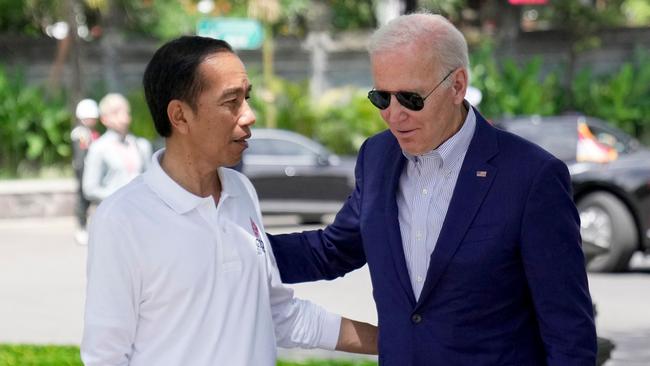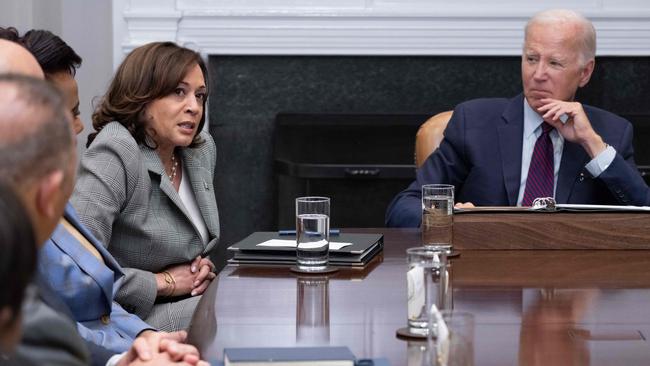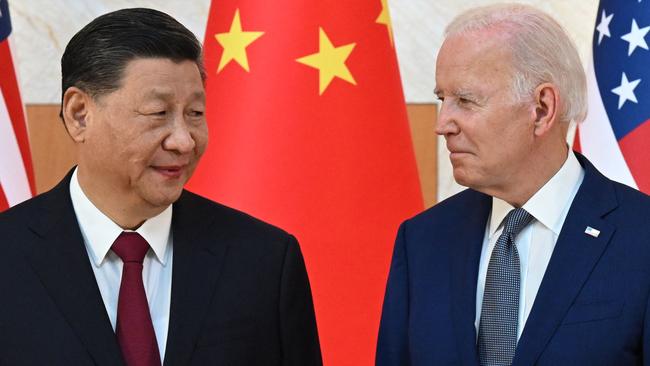Joe Biden’s ASEAN snub in Indonesia risks blowback
Joe Biden’s decision to skip Indonesia’s East Asia Summit next week suggests the White House believes there is less risk than reward in snubbing ASEAN.

US President Joe Biden’s decision to skip Indonesia’s East Asia Summit next week in favour of the Indian G20 and a bilateral side trip to Vietnam suggests the White House believes there is less risk than reward in snubbing ASEAN.
Yet with the US and China in fierce competition for influence in the region – and Southeast Asian nations feeling squeezed between two hostile superpowers – Biden’s brush-off has not gone over well.
So eager was Indonesia, the region’s largest economy, for the US President to show up for the ASEAN-led meetings in Jakarta from Monday to Thursday, that it arranged for it to be held just before the G20.
Instead, Vice-President Kamala Harris will go in his place while Biden flies to Delhi then Vietnam to secure a Comprehensive Strategic Partnership with a nation on the frontline of the US-China rivalry.
Chinese President Xi Jinping is also expected to skip ASEAN, but, typically, it is Biden’s no-show that has triggered the most irritation across the region, and nowhere more so than in Jakarta.

“The US commitment to Southeast Asia has been repeatedly questioned. People are contrasting Biden’s attendance at other forums or summits with close friends such as Japan and South Korea with his no-show at ASEAN,” said Muhammad Waffaa Kharisma, of the Centre for Strategic and International Studies in Jakarta.
The White House has defended the decision, pointing to the US administration’s record of engagement in the Indo-Pacific, though many within ASEAN see groupings such as the Quad and AUKUS as Washington’s way of skirting the bloc’s often-underwhelming talk fests.
ISEAS-Yusof Ishaak Institute senior fellow William Choong said while India was an obvious priority for Biden, given the Quad member is key to managing challenges posed by China, and a trip to Vietnam offered a key “announceable”, snubbing Indonesia was a mistake.
“Skipping out on a trip to Jakarta is a signal to outgoing President Jokowi that Indonesia is simply not on the administration’s radar. But it should be,” Choong wrote on the Fulcrum blog this week.
Indonesia, an emerging global leader, is already seen to be moving closer to China despite harbouring its own concerns over Beijing’s aggressive claims on the South China Sea.
A recent survey revealed more Indonesians believed ASEAN should opt for China rather than the US if forced to choose.
The US also had a lot of catching up to do to match China’s deep economic links with the region, particularly after its withdrawal from the 12-nation Trans-Pacific Partnership in 2017, Choong said.
Dino Patti Djalal, a former Indonesian ambassador to the US and founder of the Foreign Policy Community of Indonesia, said President Joko “Jokowi” Widodo had worked hard to court the US – including by supporting Washington’s amorphous Indo-Pacific Economic Framework – and “there is no question that Indonesia is disappointed about Biden’s absence at the upcoming EAS”.

Jokowi would also “remember that President Biden did not grant him the request for a bilateral meeting during (last year’s) ASEAN-US summit in Washington DC”.
While ASEAN needed both the US and China, Beijing had “been more effective in presenting itself as a steady partner”, Dino noted.
Biden’s presence in Jakarta next week would have sent a powerful message of support to Indonesia, ASEAN’s current chair, as it battles to maintain unity among member states now deeply divided over the relative risk China poses to the neighbourhood, and over how to deal with the Myanmar crisis.
Instead, says regional analyst and author Michael Vatikiotis, the US administration is “laser-focused” on forging alliances and partnerships that can help it contain China, and “going to an ASEAN meeting does not push that forward”.
“It is not a deliberate snub,” Vatikiotis said.
“But it fits in with (White House Asia tsar) Kurt Campbell’s strategy, which is, ‘why go to multilaterals when we are going to have to talk to the Chinese and it is not going to get us anywhere with allies and partnerships?’ ”
A Biden no-show may not be enough to push ASEAN states further into Beijing’s camp, but it raises doubts over US commitment to Southeast Asia at a time when it can least afford them.




To join the conversation, please log in. Don't have an account? Register
Join the conversation, you are commenting as Logout